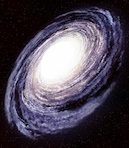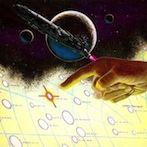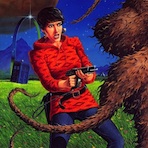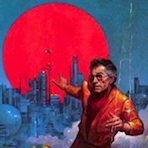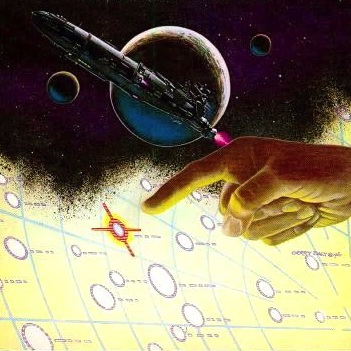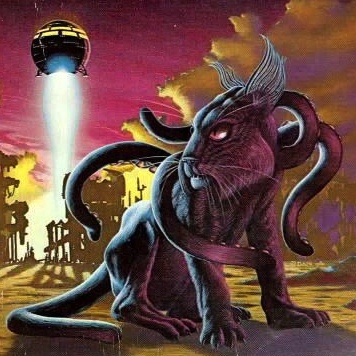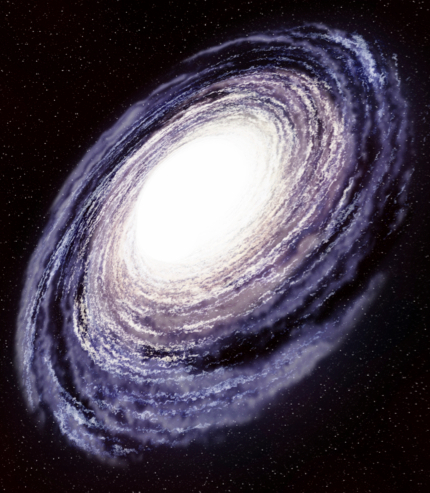this novel can be read here.
Guest reviewer:
Alexander Martin Pfleger
May 1st, 2005
Although a lot of people say that this isn't a great novel and is only interesting as a curiosity, I would say that this book is better than a lot of other SF novels, although it is not comparable to van Vogt's classic works. This book has its failures — the story digressed too much, is too episodic, and it would have been better if some things were described in more detail; for example, Bill's training on Mars in Chapter Thirteen seems very brief. And perhaps it is a bit problematic to hint at the possibility that Bilkins may be an Altairian at the end of Chapter Thirteen. And indeed, it is very problematic to integrate the mysterious story "Enchanted Village" into a novel and to explain everything that makes the story so fascinating for van Vogt's readers.
But this book has its undeniable qualities! It is not a van Vogt imitation, rather it is a tribute to his work and reference to some of his ideas. The allegorical elements of "Enchanted Village" are reminiscent of the works of Hawthorne, Poe, Kafka or Borges — it presents the idea that men will have to adjust to the universe and to transform themselves in some cases when they want to survive. That it is not good trying to be the winner in every case is reflected in this novel in the idea that neither men and Martians, nor the superintelligent beings, are the scale for all the other creatures in Creation. Another typical vanvogtian idea is the difficult kind of sympathy Bilkins has for the human race that corresponds to the yearning of the creature in "Vault of the Beast" to be human or the extraterrestrial spy in Children of Tomorrow — emotions showing that the Altairians, although they are almost completely alien to humans and have to kill the whole of mankind in order to survive, have their own special kind of psychology and are not really evil. They are only completely different from humanity.
And finally, I think it is very important to see how Pestriniero describes the typical vanvogtian themes of superhumans, and of societies that seem a bit totalitarian. On Pestriniero's future Earth, there are special security measures which are not typical for common democracies. For example, everyone on Earth has to wear little implanted metal platelets under his skin which contains all informations about him, and which can be read by police officers and security personnel when you were required to show identification. Or the way the superhuman hybrids are made — even though the negative propaganda of the Altairian invaders (that led Claire to commit suicide in Chapter Fifteen) is not a true or complete picture of this method, Pestriniero shows that this way of creating the hybrids isn't the best one. Pestriniero tries by the description of these details to show the way a future world will work although it doesn't seem democratic in all respects, and although there will be alternatives. So we could say that Pestriniero tries to react to some critical arguments against van Vogt, for instance regarding his apparent and often-discussed sympathy for monarchies and non-democratic societies.
Looking at the stylistic aspects, I would say that the story is very well written, but I have to say that Pestriniero's style is not similar to van Vogt's — although some critics claim that he tried to imitate van Vogt's style in this novel, and in some parts with success. I don't think that this is the case. The style is good, but it doesn't seem vanvogtian in any way.
